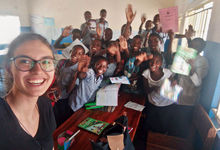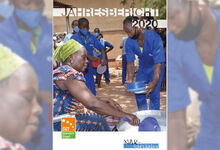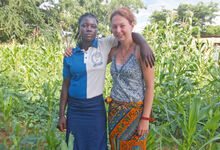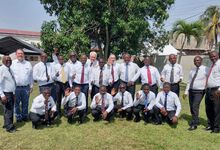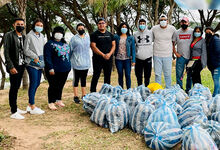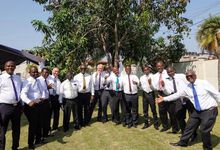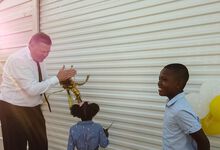Learning for our congregations
Skills and knowledge take you further. This also applies to faith and life in our congregations. And the possibilities are many: they range from events marking International Day of Education to global learning during a whole year on a foreign continent.
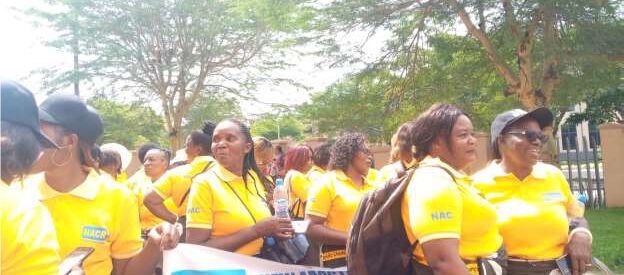
“You have just graduated from high school or have just finished an apprenticeship? Or maybe you have completed your studies and want a change of perspective? NAK-karitativ offers you the chance to volunteer for a year in one of our projects in Africa as part of weltwärts, a development volunteer service,” it says on the website of NAK-karitativ, the aid organisation of the New Apostolic Church. weltwärts is sponsored by the German government and is co-financed by NAK-karitativ.
Volunteering in Africa
This time young people are invited to Lilongwe in Malawi to support the New Apostolic Church Relief Organisation in office and project work. This is an opportunity for volunteers to gain important experience, develop their personality, learn new skills, and receive insights into development work as well as environmental and resource protection. Anyone who is at least 21 years old, speaks fluent English, and has a cosmopolitan mindset can apply. The deadline for applications is 2 April.
Empowerment of women
NACRO advocated for women’s rights on International Women’s Day. Already in the run-up to 8 March, employees of the relief organisation had prepared for the event and made banners. At a march in Lusaka in Zambia, the 500 mostly female participants called for more appreciation and recognition for women and girls who are driving digital literacy. They also felt it was important to explore the impact of the digital gender gap and to protect women and girls from gender-based violence in digital spaces. Gender equality was an important focus of many of the events and demonstrations that day.
Objectives for the new year
Making teachers more self-sufficient, introducing the new textbook, and helping Sunday School children develop their faith: these were some of the goals Guinea’s national instructors set themselves when they met in early January. Our Church in some countries in Africa uses the train-the-trainer model to first instruct national or regional instructors, who then pass on their knowledge to the teachers in the districts and congregations. To start the new year, the participants first listened to a message from District Apostle Michael Ehrich. Then they were given a new manual that includes instructions on how to use the intranet. The main topics then were Sunday School and the new textbook, but also how to revive inactive congregations. Open discussions at the end included the topic of women in ministry.
Imparting more than everyday knowledge
You don’t need it every day, but when there is an emergency, knowing how to put someone in the recovery position or how to stop bleeding is very useful. That is why children in the district of Albstadt in Germany also took a first aid course at the beginning of March and were taught how to apply bandages or measure their blood sugar. Of course, they were also able to take a look at the ambulance from the inside. Finally, there were sweets for them in the form of vitamins, cotton swabs, and swabs.
So that the ministers of the New Apostolic Church of Italy can provide good pastoral care, they regularly attend seminars for ministers. This year, ten Deacons and Priests led the way on 25 and 26 February in Sesto San Giovanni. Included on the agenda was the topic “Substantial semons”. Participants learned how to prepare and structure their sermon and how to convey the central message. The highlight of the two-day seminar was a divine service with Bishop Ivan De Lazzari.
It was also a pastoral care aspect that brought brothers and sisters together for a training session in Nelsville in South Africa. District Apostle John Kriel had expressed his concern over challenges in marriage and tasked Apostle G. Mintoor to ensure the training of counsellors. On 4 March some of these marriage counsellors met to learn how they can help couples and families. The workshop focused on helping couples explore their relationship strengths and areas of growth. Another aspect was promoting honest and personalised dialogue about a couple’s relationship. The workshop was conducted by the Family and Marriage Society of South Africa.
Article info
Author:
Date:
Keywords:
Katrin Löwen
30.03.2023
Guinea,
Malawi,
Zambia,
South Africa,
Germany,
Italy,
Divine service,
Doctrinal instruction,
Social commitment,
Congregational life


